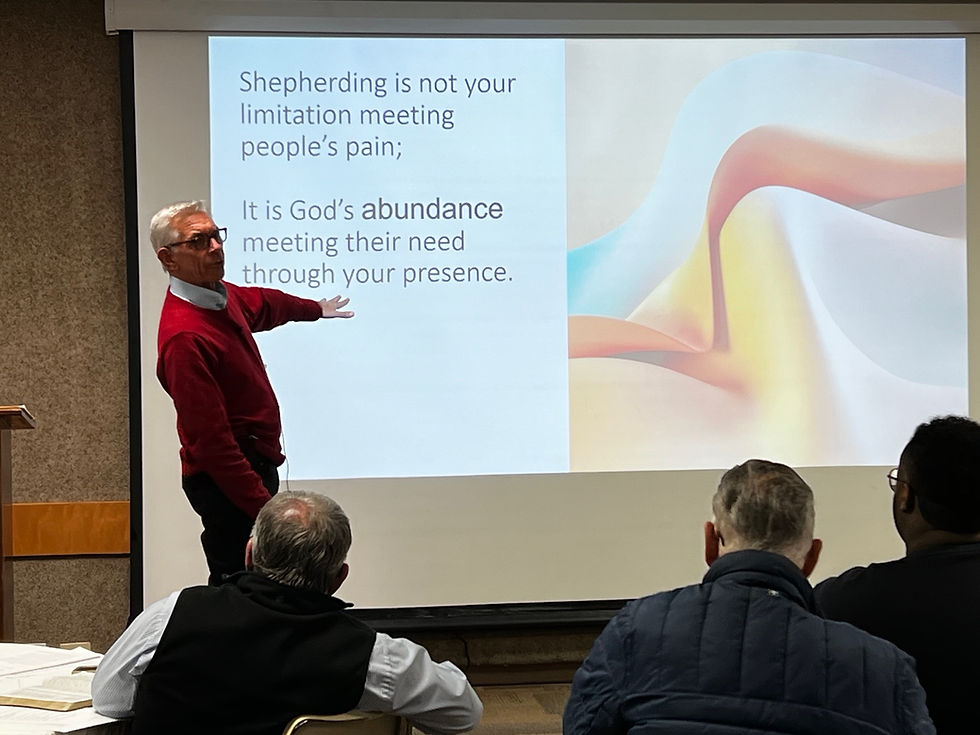New Podcast: The 9 Greatest Church Songs, and JCS on Singing.
- Todd Hall

- Dec 20, 2023
- 4 min read

In anticipation of the forthcoming JCS issue on singing, Keith and Todd sit down with Mac Sandlin in the latest episode of Theological Table Talk to discuss their favorite church hymns. In thinking of hymns that you find especially meaningful, what is it about them that moves you, and what hymns would you have listed and why? Comment below or on the YouTube edition of TTT! You can find TTT on Apple, Spotify, and on our YouTube page (with video!).
But don't head over there just yet! This is your last chance to subscribe to the Journal of Christian Studies before our latest issue, "Theology and Practice of Singing," becomes available. See our previous blog post for the editor's note and table of contents.
Included in this post is an excerpt of the article "The Church Born in Song: Toward a Sacramental Theology of Congregational Singing," by Darryl Tippens. Be sure to subscribe now to receive this issue as a part of your subscription!
The Church Born in Song: Toward a Sacramental Theology of Congregational Singing
Darryl Tippens
Pepperdine University
“What we can and must say quite confidently is that the community which does not sing is not the community.”—Karl Barth
“The Christian church was born in song,” Ralph P. Martin wrote many years ago. The claim may be grand, but it is scarcely hyperbole. Martin’s claim might even be enlarged to say that creation itself was born in song, for in the beginning there was joyous singing when “the morning stars sang together and all the heavenly beings shouted for joy” (Job 38:14). The song at creation proved to be the cosmic overture for the continuous symphony of praise sung by all of creation throughout time: “Let everything that breathes praise the Lord!” (Psa 150:6).
The songs begun at creation continue beyond this life according to the book of Revelation, a compendium of heavenly hymns. In the words of poet and hymn writer Christina Rossetti, heaven is revealed as “the home-land of music.” In short, according to Scripture, the story of God and his people is bathed in music and in choral song in particular. It is impossible to understand the worship of the early church without attention to the church’s immersion in song, for singing was one of the “building blocks” of the early church’s liturgy, along with prayer, the public reading of Scripture, and the Eucharist. The church was not only born in song; it matured, flourished, and has been periodically renewed through song. It would be hard to overstate the importance of hymn singing to the success of the Protestant Reformation, the revivals of nineteenth-century America, or the successes of the civil rights movements in the U.S. While the church’s musical practices evolved through the centuries, and while there have been historical periods and churches which did not make singing central, in general, corporate singing has remained an overarching feature of Christian worship.
In this essay I shall summarize some of the reasons why music—and congregational singing in particular—are particularly important to the health of a congregation. And I shall suggest why conducting the assembly in any way that minimizes full congregational participation is deeply problematic. The argument for congregational singing flows not only from scriptural instruction, but also from the long testimony of the Christian tradition and the insights that flow from anthropology, musicology, and neuroscience. The evidence mounts that singing, particularly group singing, enhances physical, emotional, and psychological well-being. The church has known these things for many centuries, which helps us understand why the church’s corporate singing has through the centuries been deemed “sacrament-like” or sacramental in function, if not a true “sacrament.”
The people of God have always been a singing people. Although particular styles and modes of singing are various and culturally specific (plain-song chant will not be confused with Southern Gospel), group singing has always been a hallmark of the people of God. Karl Barth’s observation still rings true:
The Christian community sings. It is not a choral society. Its singing is not a concert. But from inner, material necessity it sings. Singing is the highest form of human expression…. What we can and must say quite confidently is that the community which does not sing is not the community. And where it cannot sing in living speech or only archaically in repetition of the modes and texts of the past; where it does not really sing but sighs and mumbles spasmodically, shamefacedly and with an ill grace, it can be at best only a troubled community which is not sure of its cause and of whose ministry and witness there can be no great expectation…. The praise of God which finds its concrete culmination in the singing of the community is one of the indispensable basic forms of the ministry of the community.
To be sure, communal singing is central to many aspects of our faith. It clarifies what it means to be a human being, honors the role of the Holy Spirit in the church’s worship, unites the body of Christ, affirms the truths of the gospel, fosters spiritual formation, and inspires devotion to God. In Barth’s terms, the singing of the church is one of its “indispensable” ministries.
Subscribe to JCS to read more of this article and all of JCS 3.1!



Comments